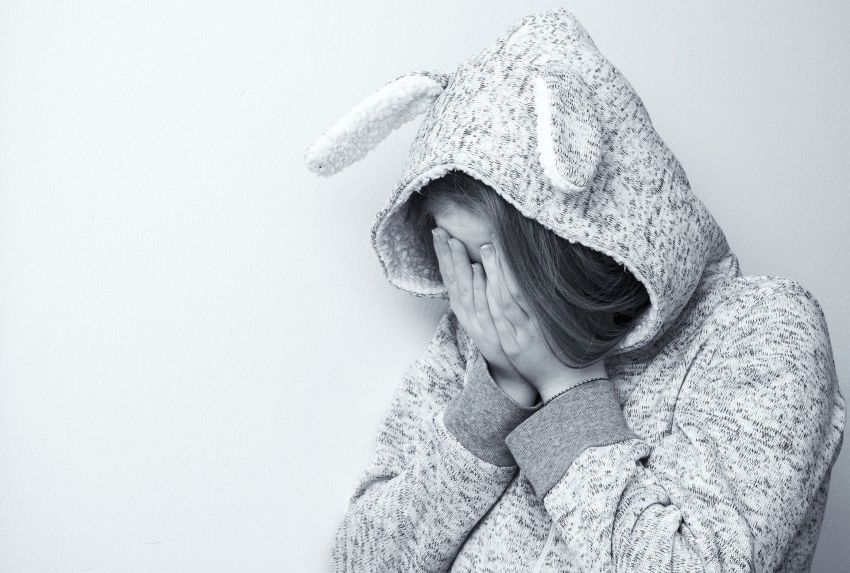
Children and young people are experiencing a mental health epidemic. While this health issue is no longer so stigmatised, the resources are not being made available for the treatment and the causes are not being tackled.
Suicide is the leading cause of death for people aged between 15 and 49, Beyond Blue reports, and nearly one-fifth of all young people, aged 11–17 years, experience high “psychological distress”.
Young First Nations people are twice as likely to die by suicide and are “three times more likely to be psychologically distressed”.
LGBTI youth, culturally and linguistically diverse youth and disabled young people are also disproportionately affected.
Professionals all say the COVID-19 lockdowns have exacerbated mental health disorders. Compared with last year, hospitalisations for self-harm and suicidal ideation for children and teenagers rose by 31% this year in New South Wales. In Victoria, the same figure was a massive 88%.
This trend is repeated worldwide. The State of the World's Children 2021, a report from the United Nations Children’s Fund (UNICEF), said the pandemic-induced rise in poverty and homelessness and young people’s inability to attend schools were contributing factors. From a study of 21 countries, one in five young people experienced depression during the first half of this year.
UNICEF also said this was “the tip of the iceberg”. Children and young people everywhere experience “neglect, abuse, and childhood trauma,” it said. Many children and teenagers are forced into child labour and many grow up in war zones.
Over the past decade, there has been a significant rise in reported and diagnosed mental illnesses in Australia. Beyond Blue said over this period there had been a 25% rise in deaths by suicide for people aged 15–24.
Why is this happening?
The late Mark Fisher argued that mental health is a political issue with social and material causes and cannot be understood through psychiatry or psychology alone. “It would be facile to argue that every single case of depression can be attributed to economic or political causes; but it is equally facile to maintain — as the dominant approaches to depression do — that the roots of all depression must always lie either in individual brain chemistry or in early childhood experiences.”
It makes sense that young people experience psychosocial distress, hopelessness and depression. They have to contend with the existential threat of the climate crisis, precarious employment, insurmountable university debt, stratospheric rent and downward economic mobility. Many also have to contend with colonial violence, police brutality and racism.
The Black Dog Institute’s report for the United Nations Climate Change Conference (COP26) The Nexus Between Climate Change and Mental Health said the “mental health effects of climate change will become more devastating as the severity and frequency of natural disasters increases and global average temperatures rise”.
It said 20–50% of those living in unpredictable and extreme weather events “can develop immediate elevated rates of anxiety, depression, PTSD, sleep disruption and suicidal ideation”. As many as 10-20% may experience post-traumatic stress disorder in the years following such disasters.
“Concern for the environmental, political, and health effects of climate change, also known as eco-anxiety or climate anxiety, has been rising as people develop intense emotions including uncertainty, anxiety, grief and hopelessness about the future.”
This is a wake-up call. But without sustained public pressure, the capitalist class will not take serious climate action, let alone take mental health seriously.
Historically Western countries, including Australia, have stigmatised mental illness. Since the industrial revolution and the onset of capitalism, “abnormal” psychology or “insanity” has been stigmatised and subjected to extreme forms of social control. It represented a threat to productivity.
From the 17th century, the mentally ill were segregated in confinement houses and later kept in custom-built insane asylums, along with the poor, unemployed and disabled.
Those with mental illness are not so stigmatised today, but the causes are not discussed, nor dealt with, and there is not enough support for sufferers: specialists still focus treatments on “fixing” the individual and most are too expensive.
It is still very difficult for young people to find, let alone afford, specialist treatment. Even under a Medicare-subsidised Mental Health Care Plan, the standard gap fee for a psychological consultation is around $130 and doctors can only prescribe up to 10 sessions. Now with significantly increased demand for services, wait times are often 6 months.
For First Nations young people, the situation is even worse. First Nations researchers at Curtin University found mental health services are not only inadequate, they are failing young people because they “continue to reinforce colonial ideologies in service provision”.
The NSW government has allocated an extra $1.5 million for “digital health services” for youth mental health. This is not only a pitiful amount but, given the demand, it does not address the dire shortage of in-person psychologist and counselling services.
Mental health experts, including Professor Maree Teesson, are pushing for the coronavirus supplement to JobSeeker to be reintroduced as well as a rebooted JobKeeper.
Green Left will continue to focus on the material causes of the rise in mental health disorders. Really tackling the climate crisis, precarious employment and homelessness would go a long way to ensure young people feel more confident about their future. If you like our work, please become a supporter or make a donation.